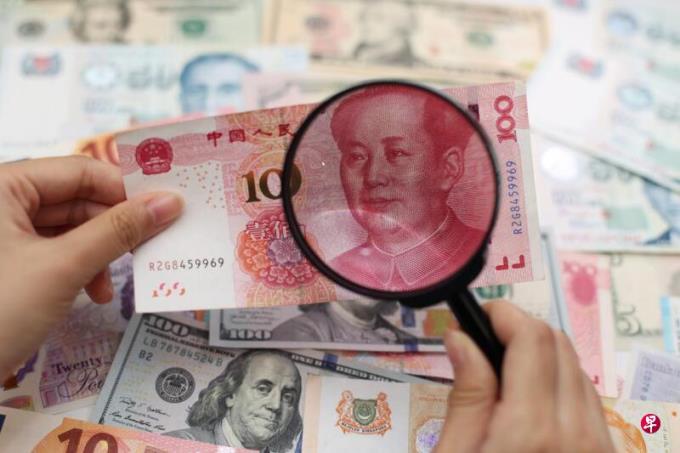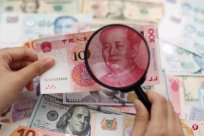
The RMB exchange rate fell slightly with the global financial market shock, but it is still high this year.Analysis predicts that as the dollar continues to weaken, the RMB exchange rate will rise further.
The offshore RMB to the US dollar exchange rate on Monday (August 5) was approaching 7.08 for a time, and all declines during the year.The exchange rate of the US dollar to the US dollar rose to 7.1155, and the decline was reduced to 0.5 % during the year.
The RMB prices announced on Tuesday morning rose to 7.1318, and raised 27 basis points on a single day.The exchange rate issued by the central bank authorized Foreign Exchange Trading Center appreciated the second trading day in a row.
As the US dollar stopped falling, the exchange rate of the offshore RMB on Tuesday fell to the 7.14 range, and the exchange rate of the shores fell to about 7.15.As of 9:00 pm on Tuesday, 1 US dollars against the offshore RMB 7.1479 and 7.1528 yuan on the shore.
The RMB appreciation market has lasted about two weeks.
The Daoma Bank research director Quan Dejian pointed out in an interview with Lianhe Morning Post that the weakening of the US dollar and interest rate hikes in the Bank of Japan are the two major reasons for the recent significant appreciation of the RMB. Last weekend to the market shock The exchange rate of the US dollar has accelerated. The non -agricultural unemployment rate in the United States announced in July last Friday (2nd) climbed to 4.3 %, which caused the market's concerns about the decline in the US economy and the expected expected interest rate cuts in the US Federal Reserve.The yield fell.Affected by this, the US dollar index was approaching 3 % within the month, supporting the RMB exchange rate. At the same time, the Bank of Japan exceeded expectations at the end of July to raise interest rates, causing the spread trading of short yen (Carry Trade, that is, by borrowing low interest rate yen and converting to high interest rate currency asset arbitrage), the yen is blocked, the yenDrive a series of Asian currencies including RMB. Wang Youxin, a senior researcher at the Bank of China Research Institute, is optimistic that the RMB exchange rate will continue to rise in the next few months.He analyzed from the Securities Times that the complexity of the global political and economic situation and the violent fluctuations of the financial market may promote more international capital to find the "shelter", and the RMB has several major advantages: the exchange rate is relatively stable, the RMB assets are in a valuable depression, the Chinese economy isThe endogenous growth momentum continues to increase. However, Kiyong Seong, chief Asia macroeconomic strategist in the French Industrial Bank, believes that considering that China's growth momentum is still weak, the fundamentals of the RMB exchange rate do not support the continuous strengthening of exchange rates.Bloomberg quoted Chang Jilong that it is expected that the People's Bank of China will remain calm and will not guide the unilateral market in the RMB exchange rate.The Federal Reserve ’s interest rate cut expectations also provide more room for easing of monetary policy for the Bank of China. Jeon Dejian said that the market plunge in the past few days has been separated from the fundamental aspect. It is believed that investors will gradually return to rationality and the US dollar will rise.However, in the past two years, the US dollar exchange rate supported by high interest rates is expected to weaken again as the United States starts the interest rate cut cycle. On the other hand, although the People's Bank of China still has room for further interest rate cuts, considering that China's interest rate is already very low, Quan Dejian believes that the possibility of a substantial rate cut."We currently maintain the predictions before the fluctuations of the current market. It is estimated that the exchange rate of the RMB against the US dollar will be around 7.13 before the end of this year, and the Gate of 7 will gradually move towards the 7th."




